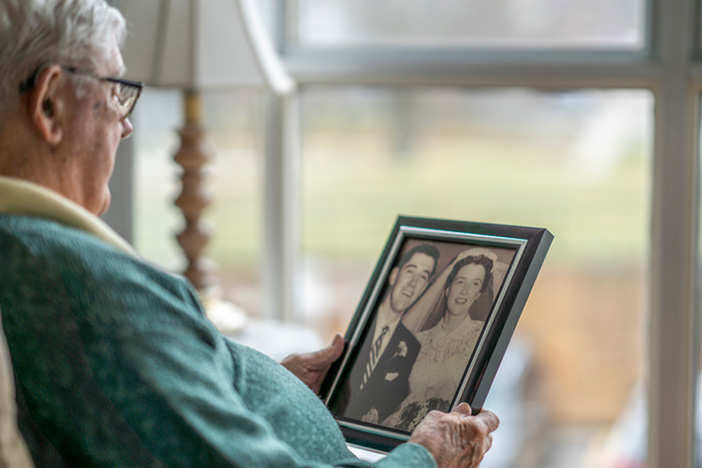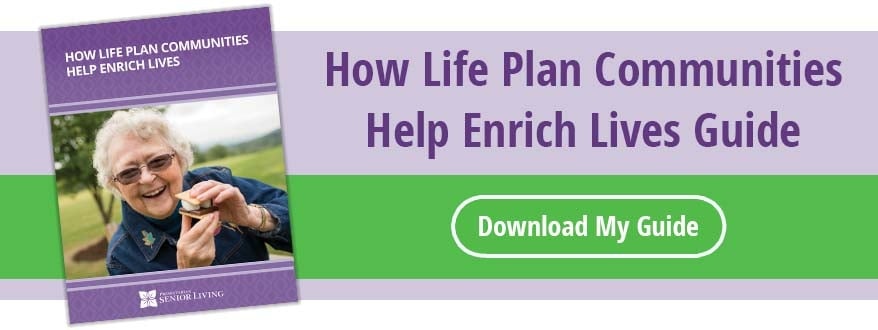Coping with the death of a spouse or partner is one of life’s most difficult journeys. Whether it’s a longtime marriage or a committed partnership, finding your way alone is a major adjustment. The weeks and months can bring a roller coaster of emotions. The bereaved might have a few days or even several weeks when they begin to feel stronger and experience a new normal. Then a memory or event triggers the sadness of the loss and the struggle begins again.
When you are a family member watching a senior loved one floundering, you may feel helpless to know what to do to help. It can be further complicated when the deceased is someone you loved, too. While grief and loss follow their own timeline, there are steps you can take that might help your loved one navigate this difficult time.
Ways to Support a Grieving Senior
Here are a few suggestions that can help support someone who is grieving:
- Remember that grieving is part of healing: Grieving is hard work both physically and emotionally. Confusion, relief, sorrow, guilt, and anger are all common and exhausting parts of the mourning experience. You can help your family member by reminding them that grieving is healing and to be gentle with their self-talk. Encourage them that it is important to work through difficult feelings.
- Don’t force artificial timelines: There is plenty of misinformation out there on the grieving process and how quickly a person should recover. Stages of grief and artificial timelines for moving forward generally aren’t useful. Suggest the senior avoid trying to adapt their grief to unrealistic milestones. Unless they must make a decision or complete a financial task due to a firm deadline, encourage the senior to do things when they feel the time is right. Cleaning out the loved one’s closet, writing thank-you notes following the funeral, or canceling their loved one’s cell phone are a few examples.
- Be empathetic and patient: Encourage your family member to take it one day at a time, and be kind to themselves. On days they feel like seeing a movie or shopping at the local mall, they should do so. But on days when their sense of loss is overwhelming, suggest they call a family member or friend and talk through their feelings with them. Remind the senior not to let others’ judgment or criticism about how they are grieving impact their behavior.

- Talk about the lost loved one: When someone has experienced such a significant loss, people might be fearful of discussing the deceased. They worry it will upset the survivor. In reality, most grieving adults welcome the chance to talk about their loved one. Sharing favorite memories and photos with your friend or family member and inviting them to talk can be healing for all of you.
- Help them connect with a support system: Surviving spouses and partners often find it helpful to connect with others who have experienced a similar loss. Hospice agencies have bereavement groups for spouses, children, and others to join. These are available even if you didn’t utilize the organization’s end-of-life care services. Another option is to connect with an online group or forum. Sites like Grieving.com and Grief in Common are good ones to explore.
Built-In Support Systems in Senior Living Communities
After the loss of a spouse, many older adults find living on their own to be lonely and isolating. For someone who is grieving, both are especially difficult feelings to cope with. It’s one reason why surviving spouses often begin to search for a senior living community to call home.
From having neighbors who’ve shared a similar journey to a variety of on-campus volunteer opportunities to help find meaning again, transitioning to a senior living community offers many benefits. Call a PSL location near you to schedule a private tour today!
